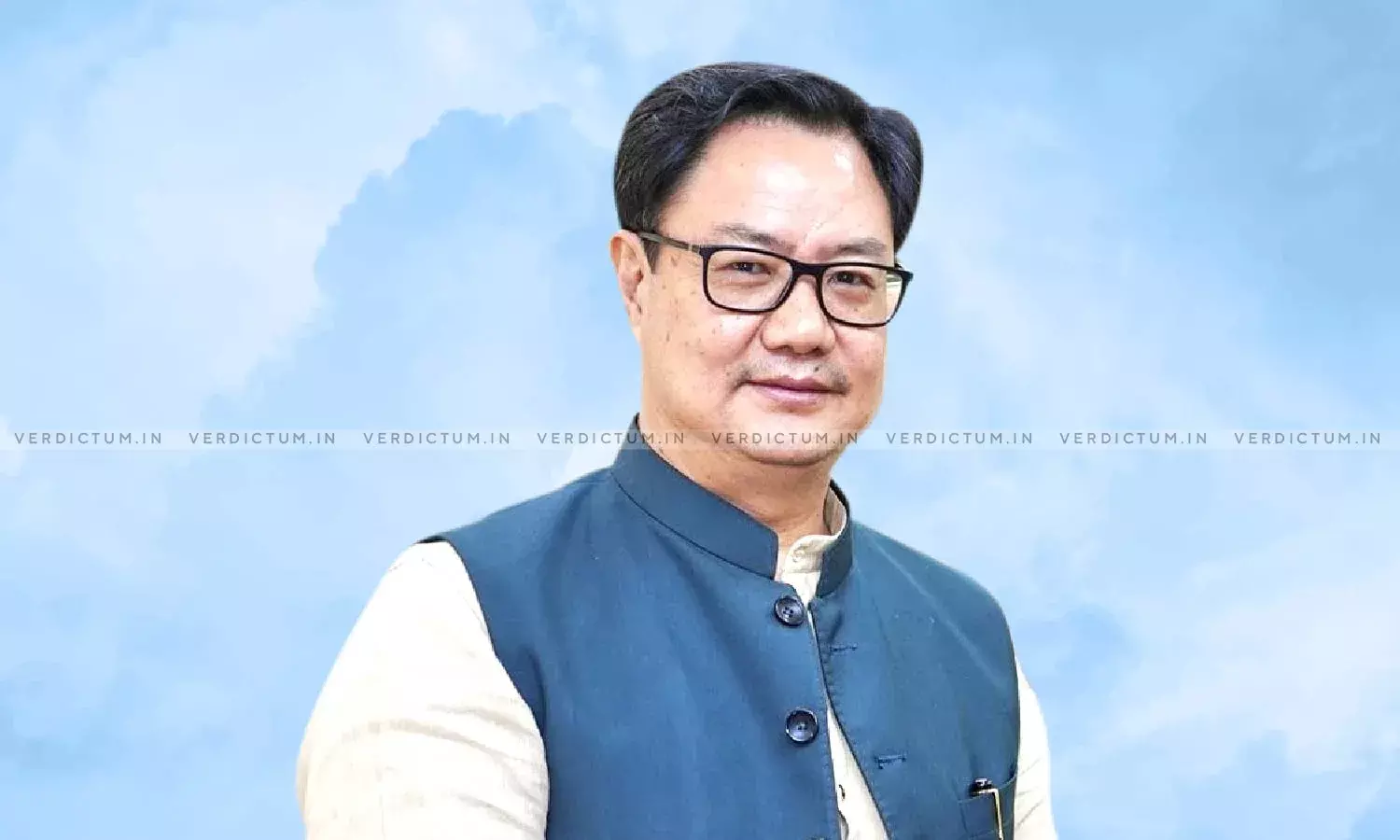Primary Job Of Judges Is To Do Judicial Work, Not Sit On Every Important Appointment: Law Minister On ECI Judgment

Union Law Minister Kiren Rijiju has said today that the primary job of judges is to do judicial work and he asked who will carry forward the judicial work if judges sit on every important appointment.
The Law Minister was expressing his opinion of the recent judgement of the Constitution Bench, in which it was held that Election Commissioners should be appointed by a panel consisting of the Prime Minister, the leader of the opposition and the Chief Justice of India.
"Appointment of Election Commission is well prescribed in the Constitution. Parliament has to enact the law, accordingly, the appointment has to be done. I agree that there is no enactment in the parliament for that. There is a vacuum, but the matter came to the Supreme Court, not because of disputes, but some people filed a PIL and then SC took suo moto cognizance of the matter and the Constitutional Bench was constituted", said Rijiju while speaking at the at India Today Conclave.
While clarifying that he is not criticising the judgment, the Minister said, "If the Chief Justice of India or Judge of India sit on every important appointment, who will carry forward the judicial work? There are so many administrative matters in our country. We have to see that the judges are primarily to deliver judicial works, they are there to deliver judicial order, thereby giving justice to people. If they get into administrative work then they will have to face criticism."
The Minister also said that the principles of justice will be compromised if the matters in which judges are part of the administrative process are called into question before the Court.
Anti India Gang
While speaking about the remarks made by Rahul Gandhi outside the Country, allegedly against India's interest, the Minister said that there is an anti-India gang inside the Country that is working against the Country's interest.
He referred to a recent seminar in Delhi on the subject of "accountability in judges' appointment" attended by retired judges, where the whole discussion according to him was about how the government is taking over the judiciary. He said that he has an excellent working relationship with the present and past Chief Justices of India and Chief Justices of the High Courts.
"It is a few of the retired judges, maybe three or four, few of those activists, part of anti-India gang, these people are trying to make Indian judiciary play the role of the opposition party. Some people even go to the Court and say please reign in the government; please change the policy of this government. These people want Indian judiciary to play the role of opposition party, which cannot happen. Judiciary is neutral. Judges are not part of any group or political affiliations", the Minister said, asking "what kind of propaganda is this?"
Appointment of Judges
While talking about the alleged confrontation between the judiciary and the government, the Minister said, "It will not be proper to use the word ‘confrontation’. In a democratic set up there are differences of opinions and positions. Even I can have a difference of opinions with my other colleagues. So, between the different organs like the executive, judiciary and legislature, there will be issues which will run against each others' ideas. But to say that there is a confrontation is not correct and I can tell you that our government has been absolutely clear in terms of giving space to the judiciary, maintaining the independence of judiciary, as well as strengthening the Indian judiciary."
There are issues but there is no confrontation between the Judiciary and the executive. If there are any perceptible, it's not because of the government, the Minister further added.
He further said that the appointment of judges is not a judicial work; it is purely administrative in nature. He said that it is the bounden duty of the government to carry out due diligence of the names sent by the Collegium. "Otherwise, I will be sitting there as a postmaster", he said.
Previously, Senior Advocate Mukul Rohatgi had criticized the Judgment of the Constitution Bench of the Supreme Court on the appointment of Election Commissioners saying that it is a case of judicial overreach.

